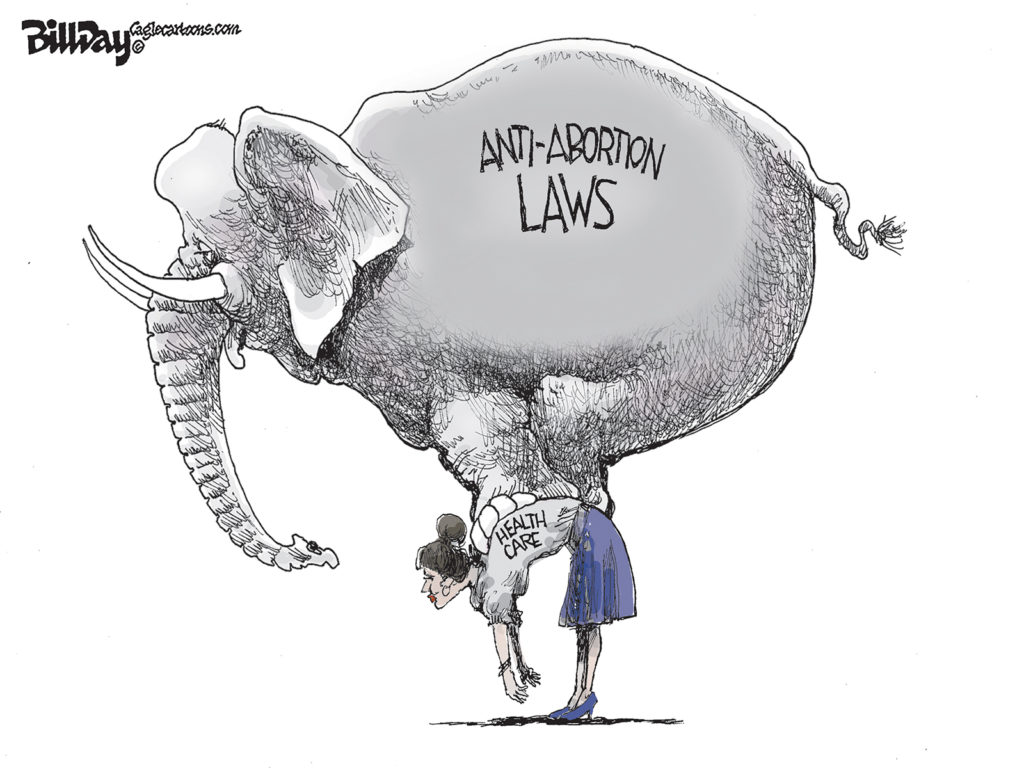There is such value in government for the elected official who’s willing to ask the impertinent question. That’s because so often, the shared, unspoken understandings and accommodations prescribe silence and going along to get along.
In Shelby County Government, it’s obvious that no one is more willing to ask the impertinent question than Commissioner Mike Ritz.
Often, it comes as part of a quixotic quest that ultimately goes nowhere for lack of support, and frequently, they are stinging rebukes of administrative officials or “do you still beat your wife” questions to staff members.
As a result, he is a lightning rod for criticism and a regular topic for commiseration around the water fountains in county offices where it’s pretty hard to find defenders. As for us, sometimes we agree and sometimes we don’t, but we always see the benefit in his questions and his challenges to conventional wisdom.
MPOh, No
His latest crusade is aimed at addressing the imbalance in the composition of the Metropolitan Planning Organization (MPO) and it’s about time that somebody in power called it for what it is – unfair.
As we have written, our MPO was named as the third most unrepresentative in a study of 50 large metro MPOs. While City of Memphis has about 63 percent of the total population of the area, it has only 16 percent of MPO members, while Memphis suburbs, with 32 percent of the population, control 79 percent of the votes. Although the area is majority minority, more than 80 percent of its members are white.
Commissioner Ritz presented his case for a Shelby County Board of Commissioner to be added to the MPO board. After the MPO voted unanimously November 19 to deny his request, he wrote to the Civil Rights Program Manger for Federal Highway Administration and the Civil Rights Office of the Tennessee Department of Transportation.
Pointing out the obvious racial disparity on the board – whose only African-American members are the mayor of Memphis, mayor of Shelby County, and MATA chairman of the board – Commissioner Ritz wrote: “Each county commissioner represents more population than almost every one of the other MPO members. The Title VI implications of the MPO Policy Board makeup are very clear. I tried to be very clear that the Shelby County Board of Commissioners wanted one of our non-Caucasian members” to serve on the board.
He said that he was turned down because “the (MPO) Policy Board ‘does not believe’ that the Commissioners’ request will encourage greater involvement in the metropolitan transportation process.’ How much representation is needed for the African-American community of the Memphis area to be ‘involved’ on the MPO?”
Outgunned and Outvoted
The impetus for the request by the county commissioners stemmed from concern that the uses of federal stimulus money shortchanged urban transportation needs. The state department of transportation said that the MPO can “organize itself as it sees fit.” That fact alone makes the racial makeup and suburban imbalance incomprehensible and unacceptable.
In other words, under the present set-up, the vote by the mayor of Memphis can be cancelled out by the vote of the mayor of Braden or Walls, and when all of the suburban mayors band together, they swamp the votes cast by Memphis interests.
It’s way past time for MPO decisions to come from an organization that accurately reflects the community it claims to serve. Federal law has never required MPOs to have representational voting, but we are told that the Obama Administration, in the wake of various questionable stimulus priorities set by various MPOs, is coming to grips with the fact that the core city’s interests are often overlooked.
As Brookings Institution puts it: “The potential exists, therefore, for MPO decisions to be biased toward certain constituencies or locales at the expense of others. The fact that MPO boards do not reflect the geographic or racial composition of the metropolitan populations they serve should be a cause for concern, especially given that MPOs were intended by the federal framers to be an essential conduit for implementing reforms and ensuring public accountability.”
Defying Logic
Here’s the thing: If the present MPO wants to resist any changes to its membership, that’s fine with us. But the organization needs to add weighted voting like 16 of the largest 50 MPOs have done. At least in this way, voting would proportional to the population represented by each MPO member.
The present makeup of the Memphis MPO is:
• Governor of Tennessee, or his representative
• Governor of Mississippi, or his representative
• Commissioner, Tennessee Department of Transportation
• Executive Director, Mississippi Department of Transportation
• Mayor of Shelby County
• Mayors of Memphis, Germantown, Bartlett, Collierville, Millington, Lakeland and Arlington
• Mayor of Fayette County
• Mayor of every incorporated town in Fayette County
• President, DeSoto County Board of Supervisors
• Mayors of every incorporated town in DeSoto County
• Chair, Memphis Transit Authority
• Chair, Memphis and Shelby County Port Commission
• Chair, Memphis and Shelby County Airport Authority
On paper, MPOs were created to broaden priorities, encourage public participation, and most revolutionary of all, balance environmental and transportation needs. And yet, for decades, decisions have skewed toward asphalt at the expense of alternatives. Its policies treated public transit and park/ride lots as afterthoughts, and bike lanes and walking trails as mere ornamentation.
Getting The Focus Right
This highway-centric focus led to environmental advocates being treated as pariahs, if not kooks. It also led to ideas like light rail getting bogged down in process while massive suburban highways were treated as indispensable. Meanwhile, in Nashville, its MPO was a leader for development of $40 million Music City Star commuter train.
We’re pleased that the MPO is finally coming to grips with alternative transportation, albeit a decade after most progressive areas, and we’re hopeful that Imagine 2035, the MPO transportation plan under way now, will further usher the MPO into the 21st century.
To create real momentum though, it will take a more representative MPO itself.




Thank god for Mike Ritz. This is outrageous.
“How much representation is needed for the African-American community of the Memphis area to be ‘involved’ on the MPO?”
are the two major mayors not elected to represent their constituency? Is it not equitable to have at least ONE geographically dispersed non-race specific board not weighted to memfrika-centric membership?
Ritz wants a member of the commission on the MPO-and since he ‘represents’ the planning and zoning arm of county government (sic) ‘he’ naturally would be the ideal person to grab an additional ring while still on the merry go round.
At least till his Republican base kicks him out. and thankfully there are already rumblings from my neighbors to do just that.
Hey, jackass, anyone who has the stupidity to use the term, memfrika, doesn’t deserve to even be listened to. You’re such a bigot that you can’t understand that it is not fair for people representing a fraction of the region’s population to control the votes. Ritz gets my vote anytime.
good. hate to think he won’t get at least ONE.